Business overview
Since its founding in 1995, the University Consortium Kyoto has been promoting faculty development activities in the Kyoto region together with member schools as a systematic effort to help faculty improve and enhance their teaching content and methods.
This “FD Joint Training Program/Thematic Training” is a small-group training program aimed at newly appointed teachers, teachers who wish to refresh their knowledge of FD, teachers who are interested in FD, and staff working in FD-related departments, with the aim of acquiring basic knowledge of FD and skills such as syllabus creation, lesson design and implementation, active learning, and grading.
In 2021, all six sessions will be held online (Zoom).
*The dates and content of programs before applications begin may be subject to change.
In addition, in 2021, we plan to distribute the programs on demand for a limited time.
*On-demand videos will be available only to those who have applied for each session.
*Due to problems during distribution, it may not be possible to release the recorded video. Please note.
Event Outline
The following events will be held in 2021:
| times | program | Date and time | Application period |
|---|---|---|---|
| 1 | FD basic knowledge | Tuesday, September 7th, 18:00-20:30 | July 20th (Tue) – August 31st (Tue) |
| 2 | Learner-Centered Teaching Workshops | October 9th (Sat) 13:30~15:30 | September 1st (Wednesday) ~ October 2nd (Saturday) |
| 3 | Basic knowledge regarding support for students with disabilities | October 14th (Thu) 18:30~20:30 | September 7th (Tuesday) ~ October 6th (Wednesday) |
| 4 | Are you able to evaluate the test and achievement of your goals? | November 9th (Tue) 18:30~20:30 | October 1st (Friday) ~ November 2nd (Tuesday) |
| 5 | Workshops for online classes | December 21 (Tue) 18:30~20:30 | November 16th (Tue) ~ December 14th (Tue) |
| 6 | Designing and improving lessons to motivate students : Using the example of assembling chemistry experiments |
January 25th (Tue) 18:30~20:30 | December 7th (Tue) – January 18th (Tue) |
Common to all sessions
- subject:
-
Faculty and staff of universities and junior colleges
*Only those who can use Zoom
*Full-time or part-time, and length of employment does not matter
*Also open to staff interested in FD (years of work experience does not matter) - venue:
- Online (using Zoom)
- Participation fee:
-
Faculty and staff of member universities of the University Consortium Kyoto: Free All others: 1,000 yen (tax included, prepayment required)
*The deadline for payment of the participation fee is as stated in the details for each session. Please note that if payment of the participation fee cannot be confirmed within the deadline, your application will be invalid.
If you are unable to pay within the deadline, please contact the contact information listed on the invoice as soon as possible.
*Please note that if you cancel your application after paying the participation fee, the participation fee will not be refunded. - Capacity:
- Approximately 30 people per session (first come, first served)
- Sponsored by:
- The Consortium of Universities, Kyoto
Precautions
- On the day of the event, please participate using a PC, tablet, or other device with a stable internet connection.
*Please refrain from participating in workshop-type programs using a smartphone. - For workshop-style programs, we recommend that you turn on your video and microphone.
- Participants are not permitted to record or record the event. Please adhere to this rule.
■ Part 1: Basic knowledge of FD
- schedule:
- Tuesday, September 7, 2021 18:00-20:30
- Event format:
- Lecture-style (using Zoom webinar)
- Progress:
- Makoto Sato (Professor, Faculty of Law, Kyoto Sangyo University)
- Lecturer:
-
Mr. Kenji Mimi (Professor, Faculty of Contemporary Society, Kyoto Sangyo University)
Mr. Hidehiro Nakajima (Professor, Educational Development Promotion Organization, Ritsumeikan University)
Ms. Hidemi Hayashi (Vice Secretary General, University Consortium Kyoto)
This training is primarily aimed at those new to FD. It is designed for those who are interested in FD but don’t know where to start. In this program, participants will first receive information about the University Consortium Kyoto and the FD training opportunities it offers. Next, they will review their basic knowledge of FD. One of the essential elements of FD is dialogue between faculty and students. In this training, after reviewing the basic knowledge of FD, participants will learn the basics of syllabus creation (the significance of a syllabus and how to write it, etc.), which is the first step in dialogue between faculty and students.
■ 2nd Learner-Centered Teaching Workshop
- schedule:
- Saturday, October 9, 2021 13:30-15:30
- Event format:
- Workshop type (using Zoom meetings)
- Lecturer:
-
Hitomi Asada (Associate Professor, Department of Early Childhood Education, Kacho Junior College)
Yuko Kasamatsu (Associate Professor, Department of Environmental and Cultural Studies, Ikenobo Junior College)
Regardless of the field or field, there is a need to shift from traditional one-way knowledge transfer classes to learner-centered classes in order to promote independent learning. “Active learning” is considered to be one such example. In this training, you will learn about the effects and problems gained from active learning cases with an eye toward the post-COVID era. In addition, through workshops, you will create actual lesson plan proposals that incorporate active learning and have them mutually evaluated. We hope to be able to exchange information on how to ensure independent learning amid the COVID-19 pandemic this year as well.
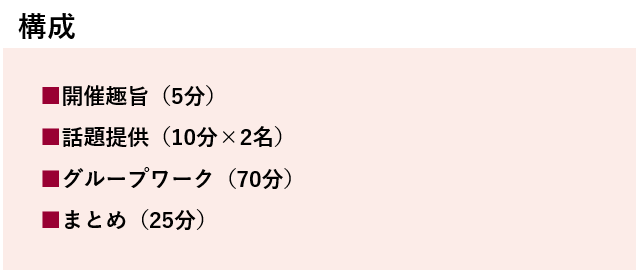
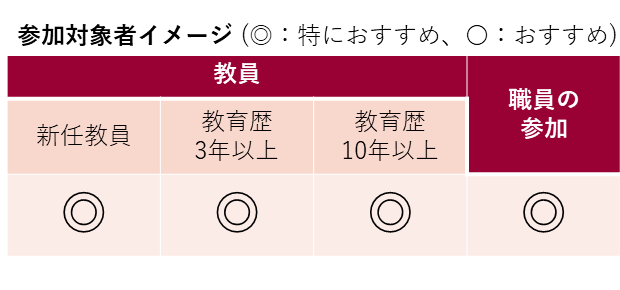
■ Part 3: Basic knowledge regarding support for students with disabilities
- schedule:
- October 14, 2021 (Thursday) 18:30-20:30
- Event format:
- Lecture-style (using Zoom webinar)
- Lecturer:
- Jun Murata (Associate Professor, Student Support Center, Kyoto University)
Currently, the student population is becoming more diverse, and universities are required to provide academic support to a variety of students. The need for academic support for students with disabilities has been strengthened by the enactment of the Act on the Elimination of Discrimination against Persons with Disabilities in 2016. The revised Act will be enacted in 2021, and the provision of reasonable accommodation, which was previously only a national and public university requirement, will become a legal obligation for private universities as well (previously it was a best efforts obligation).
In this training, participants will first learn basic knowledge about “disabilities”, and then we will provide an overview of the current situation of support for students with disabilities at universities. In addition, this will be an opportunity to think about basic knowledge and specific measures for academic support for students with developmental disabilities, which have been increasing in recent years.
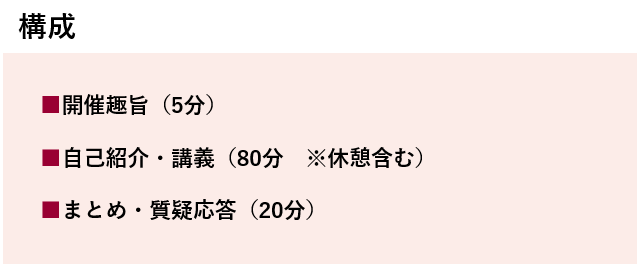
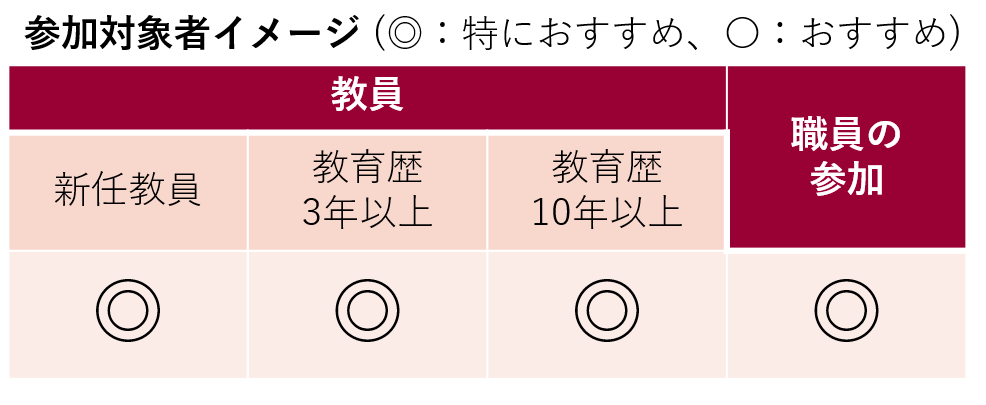
Applications are now closed as we have reached capacity.
■ Part 4: Are you able to evaluate the achievement of your goals through this exam?
- schedule:
- Tuesday, November 9, 2021 18:30-20:30
- Event format:
- Workshop type (using Zoom meetings)
- Progress:
- Naosumi Atoda (Professor, Faculty of Economics and Business Administration, Kyoto University of Advanced Science)
- Lecturer:
- Hidehiro Nakajima (Professor, Educational Development Promotion Organization, Ritsumeikan University)
Have you ever had the experience of students not doing well on regular exams or assigning reports that were terrible? Evaluation tasks are where a teacher’s teaching ability is most clearly seen. Preparing excellent evaluation tasks not only improves students’ learning outcomes, but also contributes to improving the quality of the entire class, such as by reviewing the goals to be achieved in the syllabus and teaching methods. In this training, we will discuss how to create exams and assignments that can evaluate the achievement of curriculum-level learning goals in addition to the learning goals at the subject level.
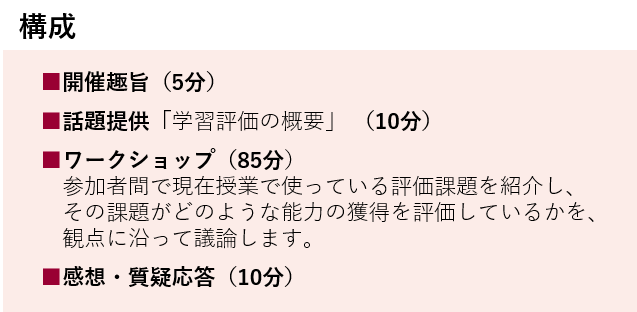
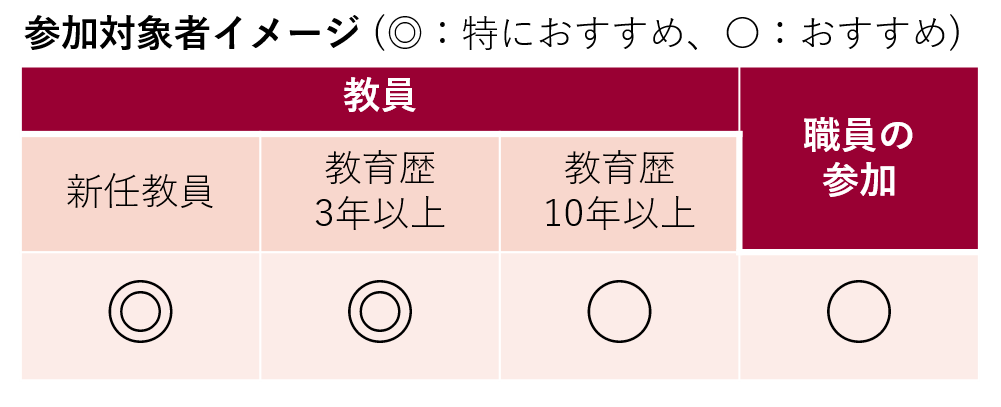
If you are participating, please choose one of the subjects you are in charge of and prepare to introduce the exam questions, report assignments, presentation assignments, etc. of that subject in the group work.
*For written exams, please prepare the exam questions, and for performance assignments, please prepare the materials you used when instructing students on the assignments so that they can be shared on the screen on Zoom.You will also be introduced to the course objectives and diploma policy for the subject, so please make sure you have the syllabus and diploma policy ready to share on your screen when you attend.
■ 5th Workshop for Online Classes
- schedule:
- Tuesday, December 21, 2021 18:30-20:30
- Event format:
- Workshop type (using Zoom meetings)
- Lecturer:
- Ms. Sachiko Ikoma (Associate Professor, Department of Child Education, Ryukoku University Junior College)
Ms. Kimie Ito (Professor, Department of Child Education, Heian Jogakuin University)
This training is a forum for sharing information about the online teaching practice that has been fully implemented since the spring of 2020. We hope to look back on the past year’s efforts to build online classes while sharing the joys and hardships, and to identify issues for building better online classes. Why not go beyond the limitations of online classes, explore what is possible only through online classes, and think together about teaching practices that will enrich the learning of students?
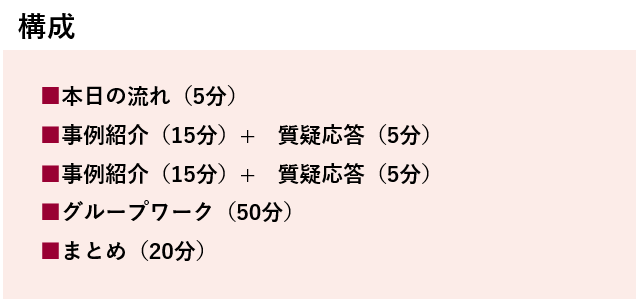
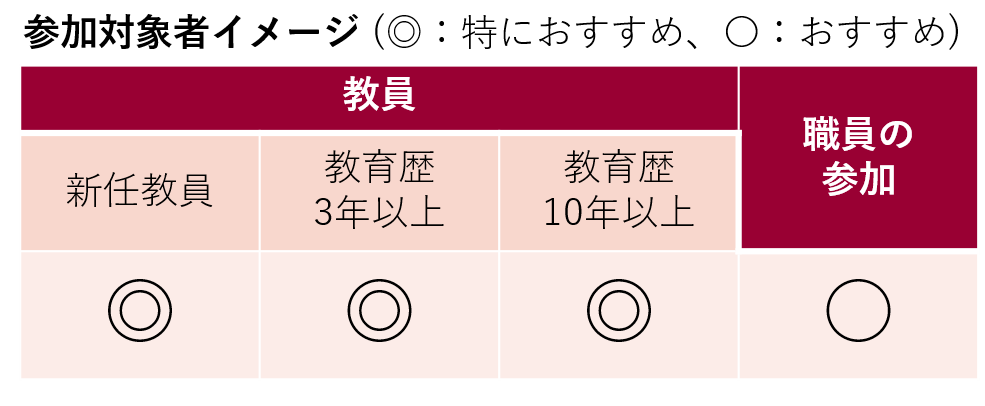
■ Part 6: Designing and improving lessons to motivate students
– Using the example of assembling chemistry experiments
- schedule:
- January 25, 2022 (Tuesday) 18:30-20:30
- Event format:
- Workshop type (using Zoom meetings)
- Progress:
- Ikuko Takao (Assistant Professor, Department of Pharmaceutical Education, Kyoto Pharmaceutical University)
Chieko Hayashi (Professor, Department of Fundamental Sciences, Kyoto Institute of Technology) - Lecturer:
- Tatsuo Oita (Former Professor at Kyoto Institute of Technology/Part-time Lecturer at Kyoto Sangyo University)
By inspecting and improving existing lessons, students can be motivated and more steadily linked to learning outcomes.
In this training, we will focus on how to set up experiments, which has not been covered much in the past, and consider ways to motivate students. Experimental subjects are used to stimulate students’ interest in specialized science and engineering subjects and help them understand the content concretely. Depending on how the experiment is set up, students may lose motivation to continue studying because they do not understand the purpose or interest of the experiment, or conversely, the experiment may open up a new world of knowledge. The presenter is a chemistry specialist who currently teaches a wide range of generations, from university lectures to high school-college collaboration classes and recurrent classes. This time, we will use the example of how to set up an easy-to-understand chemistry experiment for high school students as an example, and all participants will think about ways to design and improve lessons while answering questions from the participants.
For teachers of the humanities, this will be an opportunity to encounter new ideas and teaching methods.
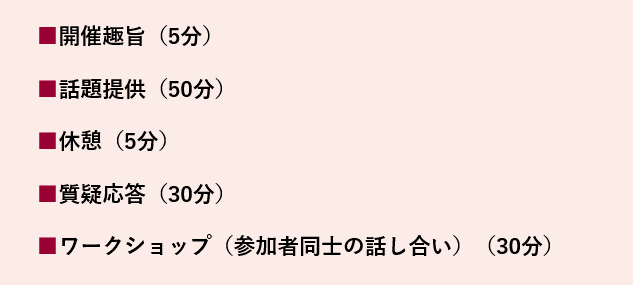

Implementation Report
This year, six online sessions were held on the themes of “Fundamentals of FD,” “Online Classes,” “Learning Support and Special Support,” “Class Design and Practice,” “Syllabus Creation and Grading,” and “Active Learning,” with a total of 137 participants from across the country.
In the participant survey, participants were asked about their satisfaction with the course, with an average of 95.4% rating “Satisfied” or “Somewhat Satisfied” across all six sessions, earning a high rating. Possible
factors for this high rating include the setting of tasks that return to the basics of FD training, and the fact that a forum was provided for each university to share case studies and provide topics of conversation, allowing participants to actively participate and leading to new discoveries, despite the shared problem of the COVID-19 pandemic.
In the free-form comment section, comments included, “I was able to learn about the overview of FD and hear useful information for creating a syllabus” (1st session), “I was able to share the ideas and knowledge of each teacher in their classes since COVID-19, and I was able to get useful information from the participants that I can use starting tomorrow” (2nd session), “I was able to understand better with easy-to-understand examples of the legal basis for support and the process of determining the scope” (3rd session), “I would like to incorporate the method of having students self-evaluate using a rubric table for evaluation of report assignments and written exams” (4th session), “I felt that hearing about the ideas of teachers who teach practical classes can be utilized in my own classes after COVID-19” (5th session), and “There are very few opportunities for FD regarding student experiments, so I was able to get a lot of useful knowledge” (6th session). It seems that both faculty and staff were able to use the new learning and realizations as a reference for improving their classes in the future.
For the next fiscal year, we will continue to explore the themes and time slots with high needs among participants and consider ways to secure participants from member schools.
Contact Information
Consortium of Universities Kyoto, Public Interest Foundation FD Project Contact
TEL: 075-353-9163 FAX: 075-353-9101 Address:
Campus Plaza Kyoto, Nishinotoin-dori Shiokoji-sagaru, Shimogyo-ku, Kyoto 600-8216
*Reception hours: Tuesday to Saturday 9:00-17:00 (excluding New Year holidays)
















